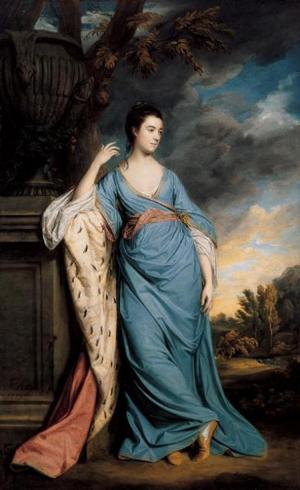Adventures in Swaziland: The Story of a South African Boer
Nonfiction, Religion & Spirituality, New Age, History, Fiction & Literature| Author: | Owen Rowe O'Neil | ISBN: | 9781465519757 |
| Publisher: | Library of Alexandria | Publication: | March 8, 2015 |
| Imprint: | Language: | English |
| Author: | Owen Rowe O'Neil |
| ISBN: | 9781465519757 |
| Publisher: | Library of Alexandria |
| Publication: | March 8, 2015 |
| Imprint: | |
| Language: | English |
The first time Lancelot saw Mary Ann she was cleaning the steps. He avoided treading upon her, being kind to animals. For the moment she was merely a quadruped, whose head was never lifted to the stars. Her faded print dress showed like the quivering hide of some crouching animal. There were strange irregular splashes of pink in the hide, standing out in bright contrast with the neutral background. These were scraps of the original material neatly patched in. The cold, damp steps gave Lancelot a shudder, for the air was raw. He passed by the prostrate figure as quickly as he could, and hastened to throw himself into the easy-chair before the red fire. There was a lamp-post before the door, so he knew the house from its neighbours. Baker's Terrace as a whole was a defeated aspiration after gentility. The more auspicious houses were marked by white stones, the steps being scrubbed and hearthstoned almost daily; the gloomier doorsteps were black, except on Sundays. Thus variety was achieved by houses Otherwise as monotonous and prosaic as a batch of fourpenny loaves. This was not the reason why the little South London side-street was called Baker's Terrace, though it might well seem so; for Baker was the name of the builder, a worthy gentleman whose years and virtues may still be deciphered on a doddering, round-shouldered stone in a deceased cemetery not far from the scene of his triumphs. The second time Lancelot saw Mary Ann he did not remember having seen her before. This time she was a biped, and wore a white cap. Besides, he hardly glanced at her. He was in a bad temper, and Beethoven was barking terribly at the intruder who stood quaking in the doorway, so that the crockery clattered on the tea-tray she bore. With a smOthered oath Lancelot caught up the fiery little spaniel and rammed him into the pocket of his dressing-gown, where he quivered into silence like a struck gong. While the girl was laying his breakfast, Lancelot, who was looking moodily at the pattern of the carpet as if anxious to improve upon it, was vaguely conscious of relief in being spared his landlady's conversation. For Mrs. Leadbatter was a garrulous body, who suffered from the delusion that small-talk is a form of politeness, and that her conversation was a part of the "all inclusive" her lodgers stipulated for. The disease was hereditary, her father having been a barber, and remarkable for the coolness with which, even as a small boy whose function was lathering and nothing more, he exchanged views about the weather with his victims. The third time Lancelot saw Mary Ann he noticed that she was rather pretty. She had a slight, well-built figure, not far from tall, small shapely features, and something of a complexion. This did not displease him: she was a little aesthetic touch amid the depressing furniture
The first time Lancelot saw Mary Ann she was cleaning the steps. He avoided treading upon her, being kind to animals. For the moment she was merely a quadruped, whose head was never lifted to the stars. Her faded print dress showed like the quivering hide of some crouching animal. There were strange irregular splashes of pink in the hide, standing out in bright contrast with the neutral background. These were scraps of the original material neatly patched in. The cold, damp steps gave Lancelot a shudder, for the air was raw. He passed by the prostrate figure as quickly as he could, and hastened to throw himself into the easy-chair before the red fire. There was a lamp-post before the door, so he knew the house from its neighbours. Baker's Terrace as a whole was a defeated aspiration after gentility. The more auspicious houses were marked by white stones, the steps being scrubbed and hearthstoned almost daily; the gloomier doorsteps were black, except on Sundays. Thus variety was achieved by houses Otherwise as monotonous and prosaic as a batch of fourpenny loaves. This was not the reason why the little South London side-street was called Baker's Terrace, though it might well seem so; for Baker was the name of the builder, a worthy gentleman whose years and virtues may still be deciphered on a doddering, round-shouldered stone in a deceased cemetery not far from the scene of his triumphs. The second time Lancelot saw Mary Ann he did not remember having seen her before. This time she was a biped, and wore a white cap. Besides, he hardly glanced at her. He was in a bad temper, and Beethoven was barking terribly at the intruder who stood quaking in the doorway, so that the crockery clattered on the tea-tray she bore. With a smOthered oath Lancelot caught up the fiery little spaniel and rammed him into the pocket of his dressing-gown, where he quivered into silence like a struck gong. While the girl was laying his breakfast, Lancelot, who was looking moodily at the pattern of the carpet as if anxious to improve upon it, was vaguely conscious of relief in being spared his landlady's conversation. For Mrs. Leadbatter was a garrulous body, who suffered from the delusion that small-talk is a form of politeness, and that her conversation was a part of the "all inclusive" her lodgers stipulated for. The disease was hereditary, her father having been a barber, and remarkable for the coolness with which, even as a small boy whose function was lathering and nothing more, he exchanged views about the weather with his victims. The third time Lancelot saw Mary Ann he noticed that she was rather pretty. She had a slight, well-built figure, not far from tall, small shapely features, and something of a complexion. This did not displease him: she was a little aesthetic touch amid the depressing furniture















